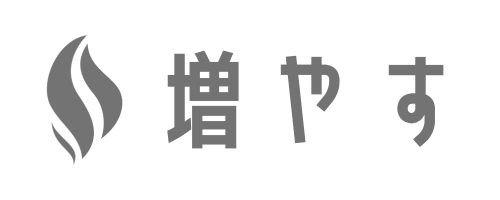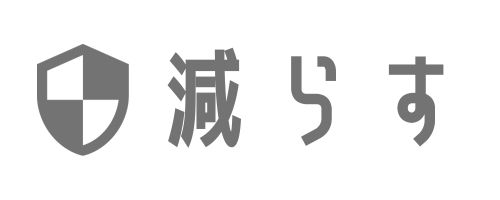
本のタイトル:The 4-hour work week
著者の紹介:
Timothy Ferriss
起業家、エンジェル投資家、作家。1977年生まれ。プリンストン大学出身。2001年に会社員として働きながらサプリ会社BrainQUICKENを立ち上げる。2010年に前社を売却し、そのタイミングで4時間/週のみ働くライフスタイルを始める。
Takeaways:
1. People don’t want to be millionaires—they want to experience what they believe only millions can buy. The fantasy is the lifestyle of complete freedom it allows. So the question becomes: “How can one achieve the millionaire lifestyle of complete freedom without first having $1,000,000?”
人々は億万長者になりたいわけではない。億万長者でないと出来ないと思い込んでいる経験を欲しがっている。
ということはその本質は、「どうやったら億万長者の様な経験ができるのか」という事。(億万円を持たずに!)
そのためには、下記の”D・E・A・L”を進めてみる。
2. 4 process to reinvent yourself. “DEAL”
D (Definition):Replace self-defeating assumptions.
固定概念からアンインストールして、新しい定義をインストールする
E (Elimination):Forget time management; learn to ignore the unimportant.
多くの事をするためにタイムマネジメントをして時間を作りだすのではなく、そもそも不要なモノは何かを整理し排除する
A (Automation):Learn to put cash flow on autopilot.
仕事を自動化できる仕組み作り(=方程式)について学び、自分をその方程式から取り除く準備をする
(※外注(特に海外)、バーチャルアシスタント、等)
L (Liberation):Create freedom of location.
トラディショナルなオフィス環境やから抜け出し、自分の所在の自由を作る方法を学ぶ
(※リモートワークなど好きな環境で働けるような準備)
3. D (Definition):
Learn that being financially rich and being able to live like a millionaire are quite different. Money combined with the value of time and mobility takes on a whole new value. It isn't the money that is so important; it's the ability to live life on our own terms.
経済的に豊かであることと、ミリオネアの様な暮らしができるという事は、全くの別物だという事を理解する。
お金は、時間や場所の自由が組み合わさる事で、全く新しい価値が生まれる。大切なのは金ではなく、自分の基準。
4. Everything Popular is Wrong (Lists of re-installation)
1. Retirement is Worst-Case-Scenario Insurance.
Retirement planning is like life insurance. Your retirement is not the goal.
「リタイアした後にやりたい事をやる」ではなく、やりたい事をしながら生きる方が楽しいよ。あたりまえだけど。
2. Interest and Energy are cyclical.
Work only when you are most effective and life is both more productive and enjoyable.
好奇心やエナジーは周期的。1番生産的かつワクワクするときだけ仕事しろや。(そうなるために努力はしろ)
3. Less is Not laziness.
Despite working fewer hours, the NR produce more meaningful results than other people. Focus on being productive instead of busy.
長時間働けばいいってもんじゃない。集中するべきは生産的であること、「busy」であることじゃない。
4. The Timing is Never right.
“Someday” is a disease that takes your dreams to the grave with you. If it’s important to you and you want to do it “eventually,” just do it and correct course along the way.
「ベストなタイミング」という言葉は死を意味する。重要だと思うなら、今すぐやってそれをうまくいく方法を探せ。
5. Ask for forgiveness, Not permission.
Try it and then justify it. Get good at being a troublemaker and saying sorry when you screw up.
「やる前の許可」を得るのではなく、「やった後の許し」を得ろ。やった後に正当化しろ。失敗したら謝るだけ。
6. Emphasize Strengths, Don’t Fix Weaknesses.
Focus on better use of your best weapons instead of constant repair.
強みを伸ばして、弱みは直すな。丸い奴より尖った奴の方が希少価値は高い。GeneralistよりSpecialist
7. Things in Excess become their opposite.
Too much, too many, and too often of what you want becomes what you don’t want.
食べ物と同じ。行きつく先は「飽き」や「苦痛」。最初から終点は見えているから所有物(belonging)は減らせ。
8. Money alone is Not the solution.
The routine of the money wheel is a constant distraction that prevents you from seeing how pointless it is. The problem is more than money.
Dの定義そのもの。金は紙。結局それと交換できる物や経験が欲しいだけ。なら金を追うな。好きな事を追え。
9. Relative Income is More important than Absolute Income.
Relative income is the real measurement of wealth for the New Rich.
「4h/週で50万/月」と「40h/100万/月」はどちらがリッチか?
10. Distress is Bad, Eustress is good. Eustress is the stimulus for growth.
Be equally aggressive in removing distress and finding eustress.
悪いストレスは徹底的に消し去れ。成長できる良いストレスは積極的に取りに行け。
5. E (Elimination)
多くの事をするためにタイムマネジメントをして時間を作りだすのではなく、そもそも不要なモノは何かを整理し排除する
1. Pareto Principle (80/20rule):
ある特定の要素20%が、全体の80%の成果を生み出す。(例:売上の80%は、全体の20%の商品から生まれている)
2. Perkinson‘s Law:
法則1. 仕事の量は完成のために与えられた時間を全て満たすまで膨張する
法則2. 支出の額は、収入の額に達するまで膨張する
3. Cultivating Selective Ignorance:
選択的無知を育てる。
方法1. One-week media fast. No news, no music, no web-surfing or whatever. もし自分の仕事をするうえで支障が出てくるようであれば戻せばいい。大抵不要だと分かる。
方法2. Just-in-time informationだけ消化する。基本consumeしているのはin advanceで忘れる。
方法3. 面白くなくて非生産的なら、Nonfinishingでおけ。完成しないと気持ち悪いとかはやめろ。
4. The Art of Refusal:
「重要な時」に「めんどくさい奴」になることを学ぶ。
学校でも人生でもそうだが、自己主張が強いと認識されれば、毎回言い合いになったりお願いされたりしなくても、優遇されるようになる。(アイツと言い合うとめんどいし怖いから、アイツのいう事従っておいた方が楽だね。。。)
直ぐにYesという人は、次回も同じassumptionで来られたときに、Noと言ったら悪い奴みたいになる。(本当はいい奴なのに。) 反対にいつもNoというやつがyesというといい奴みたいになる。
基本的に時間泥棒は自分の外からやってくる。時間泥棒に時間を盗まれないようにするために、めんどくさい奴で、積極的にNoと言え。Yesの時の価値も上がる。
6. A (Automation)
「仕事開始前」に、自分が抜けた時に回るかどうかを見据えて仕事を始めろ。自分がいないと回らない仕事は選ぶな。
仕事の方程式に自分が入っていれば、自分がいないと成り立たずに、物理的、時間的に縛られた生活になる。
仕事の方程式から自分を除き、それでも仕事が回る方法を探し続けろ。
例)外注、アシスタント、AI
7. L (Liberation)
Automationが出来るようになれば、自分に物理的な制約がなくなる。
サラリーマンでトラディショナルなoffice環境で働いているのであれば、上司と交渉して場所の自由を手に入れろ。
1. Use a pre-planned project or emergency and take two weeks out of the office
事前に計画したプロジェクトや緊急事態を利用し、2週間オフィスを空ける
2. Propose how you can work remotely
リモートワークの方法を提案する
3. Make those two weeks the most productive at work
その2週間を、仕事で最も生産的なものにする
4. Show your boss the quantifiable results upon returning. Suggest two or three days at home per week as a trial for two weeks. Make them ultra-productive
2週間後、上司に定量的な成果を示す。2週間のトライアルとして、週に2~3日の自宅勤務を提案するし、超生産的に仕事する
5. Suggest only one day in the office per week. Make those days the least productive of the week
週に1日だけオフィスにいることを提案する。その日を週のうちで最も生産性の低い日にする
6. Suggest complete mobility
完全なモビリティを提案する
ちなみにこれコロナ前の書籍。




